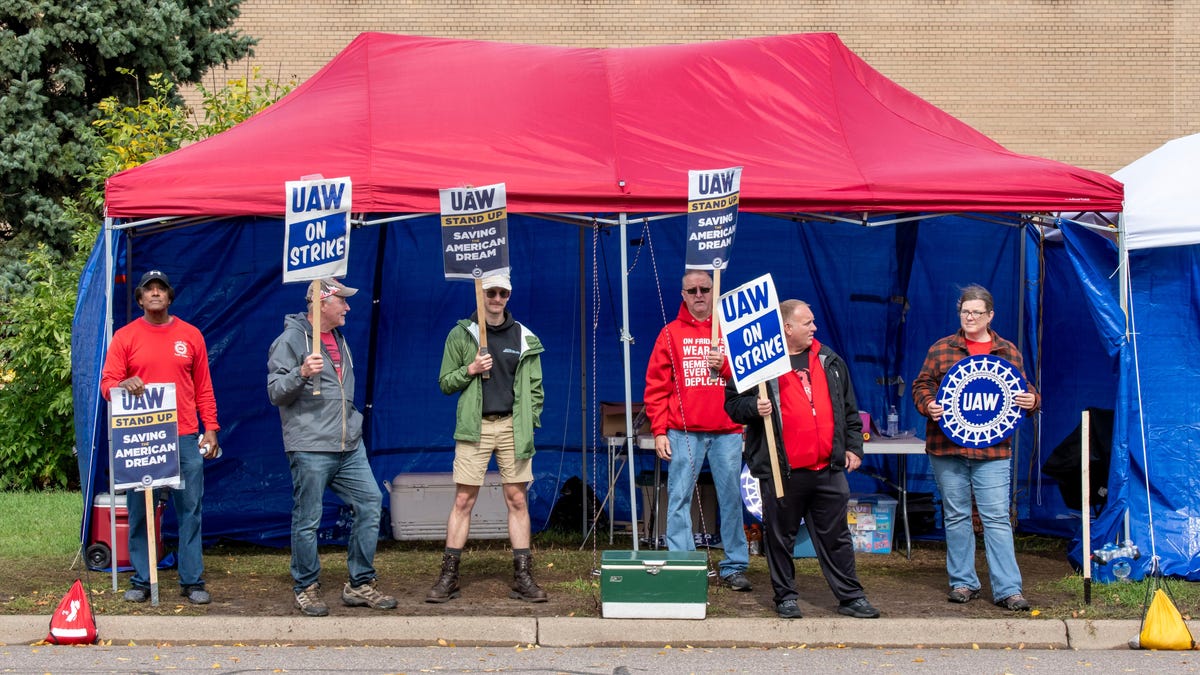The United Auto Workers union expanded its strike last week, bringing the total number of striking auto workers to about 25,000. And while they’re hoping to reach an agreement with the Big Three that includes better wages, an end to the tiered employment system and shorter work weeks, there’s also another outcome that the UAW is hoping to achieve — convincing non-union auto workers to unionize, too.
NBC News reports that UAW President Shawn Fain has his eyes set on a big expansion of the union’s influence. He told NBC News that the UAW is “looking at organizing half a dozen auto companies in the coming years,” and added, “Pretty soon we won’t just be talking about the Big Three — more like the Big Five, Big Seven, Big Ten unionized automakers. We’re just getting started.”
According to Fain, the strike has done a lot to help that cause, telling NBC News, “The response from autoworkers at nonunion companies has been overwhelming. Hundreds of workers across the country, from the West to the Midwest and especially the South, are reaching out to join our movement and to join the UAW.”
One worker already working to unionize their factory is Conbralius Thomas, an 11-year veteran of Hyundai’s Montgomery, Alabama plant. Unhappy with rules regarding paid time off and a lack of raises, Thomas told NBC News, “I wish we were in a position where we could strike now.” From his perspective, “in the South, you have a lot of scared people that don’t know much about a union because they’ve been raised to be against a union.”
Take, for example, Omari Roundtree, a worker at Honda’s Maryville, Ohio factory. He complained that his wages haven’t kept up with inflation and yearly rent increases, telling NBC News, “It’s really disconcerting when you’re building a $60,000 SUV and you can’t afford it.” And yet, he said he’s still skeptical of unionizing due to his dad’s experience working for a GM supplier in the 1990s. “I remember him telling me it’s kind of like you’re the little guy that’s in the arena with two pit vipers, and you’re basically trying to high-tail it out of there without getting bitten or killed,” he said.
But there’s also another factor at play. Some factory workers are used to working jobs that pay and treat them worse. The higher pay, better schedule and benefits of working at a plant are a huge draw, and it can be hard to risk losing all that in an attempt to unionize. Falid Vongasa, who works with Roundtree in Maryville, told NBC News he appreciates the job stability that Honda offers, especially when compared to working in the restaurant industry.
“If you’re familiar with a restaurant background, you don’t get weekends off, you don’t get medical insurance most of the time, 401(k) and all that,” he told NBC News. “I’m grateful for all that, and I’m not really expecting any more.”

